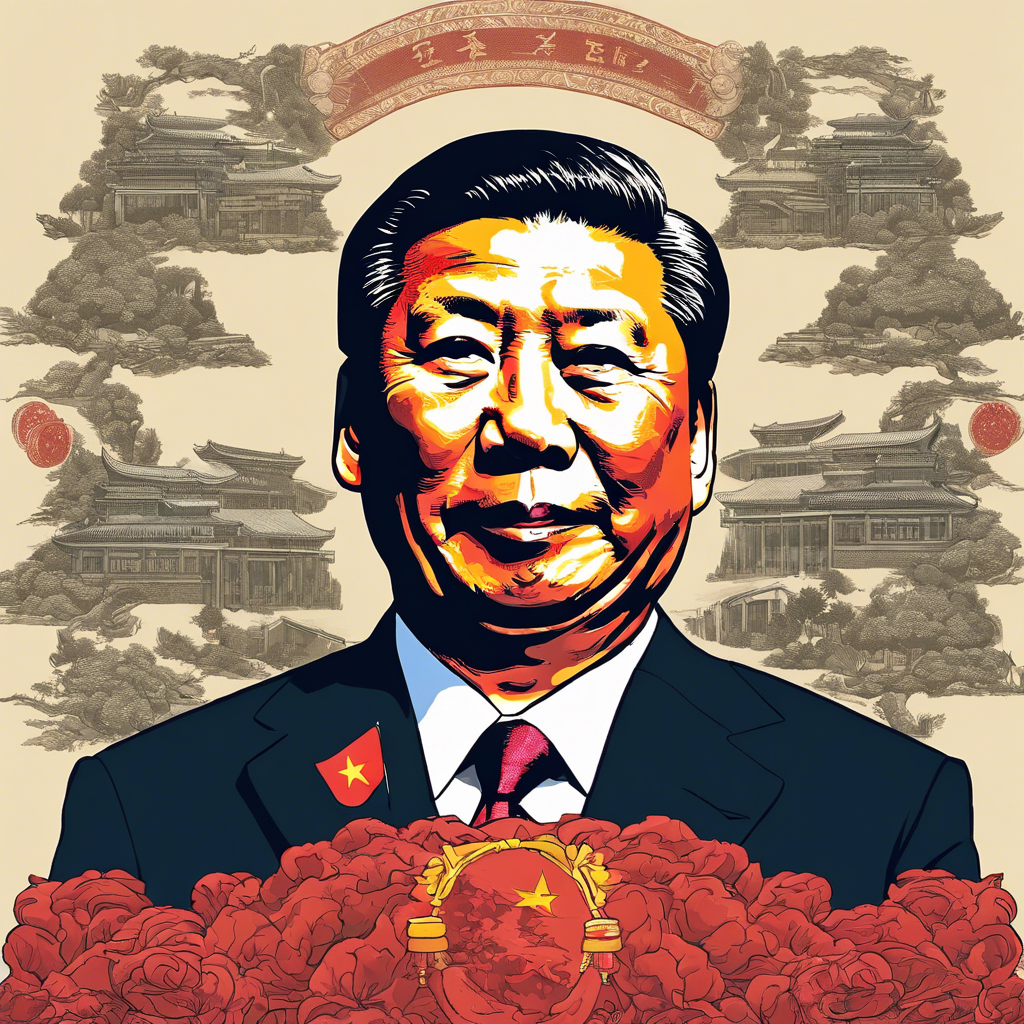China’s President Xi Jinping Defines Path to Financial Superpower Status

President Xi Jinping outlines China’s unique approach to becoming a financial superpower, emphasizing the Communist Party’s leadership and support for the real economy.
President Xi Jinping has laid out a concrete definition of how China plans to achieve its goal of becoming a financial superpower. Speaking at a high-level meeting at the Central Party School in Beijing, Xi highlighted the distinctiveness of China’s financial system compared to Western models. He emphasized the importance of the Communist Party’s leadership and the focus on financing support for the real economy. Xi also stressed the need for strong fundamentals, including a robust currency, central bank, financial institutions, supervision, and talent.
The Unique Elements of China’s Financial System
President Xi Jinping outlined the major differences between China’s financial system and Western models. He highlighted the Communist Party’s leadership as a defining characteristic, emphasizing the party’s role in guiding economic policies and decision-making. Xi also emphasized the importance of financing support for the real economy, indicating that China’s financial system is designed to prioritize the needs of businesses and industries over speculative activities.
Focus on Strong Fundamentals
Xi Jinping emphasized the importance of strong fundamentals in China’s journey towards financial superpower status. He highlighted the need for a strong currency, a robust central bank, and a network of domestic and international financial institutions. Xi also stressed the significance of strong supervision and talent in ensuring the stability and resilience of China’s financial system.
Preventing Systemic Financial Risk
While acknowledging the long-term nature of the work required to become a financial superpower, Xi Jinping also emphasized the importance of addressing immediate challenges. He highlighted the need to prevent systemic financial risk and called for financial regulators and industry authorities to clarify their responsibilities and strengthen cooperation. Xi emphasized the importance of risk management and stability maintenance at both the regional and national levels.
Combating Corruption and Moral Hazard
President Xi Jinping pledged to intensify efforts to combat corruption and prevent moral hazard in China’s financial system. He emphasized the need for resolute punishment of corruption and strict prevention of moral hazard in the risk management process. Xi’s commitment to addressing corruption is part of a broader de-risking campaign aimed at ensuring the stability and integrity of China’s financial sector.
Enhancing Competitiveness and Influence
Xi Jinping outlined China’s strategy to enhance its competitiveness and influence on international rules. He emphasized the importance of promoting “high level” financial opening-up and streamlining restrictive measures. Xi also highlighted the need to improve transparency, stability, and predictability of policies related to overseas investment and financing activities. Enhancing financial support for the Belt and Road Initiative, China’s ambitious infrastructure project, is also a key focus.
Conclusion:
President Xi Jinping’s definition of China’s path to financial superpower status provides insight into the unique elements of the country’s financial system. With a focus on the Communist Party’s leadership, support for the real economy, and strong fundamentals, China aims to strengthen its financial system and enhance its competitiveness on the global stage. However, challenges such as systemic risk, corruption, and regional debt crises remain, and China’s authorities are taking steps to address these issues. As China navigates a complex geopolitical environment, the pursuit of financial superpower status will require ongoing efforts to ensure stability, transparency, and resilience in its financial system.

